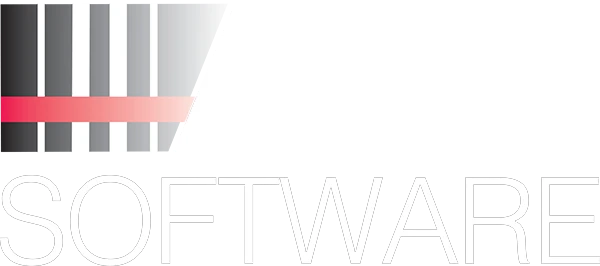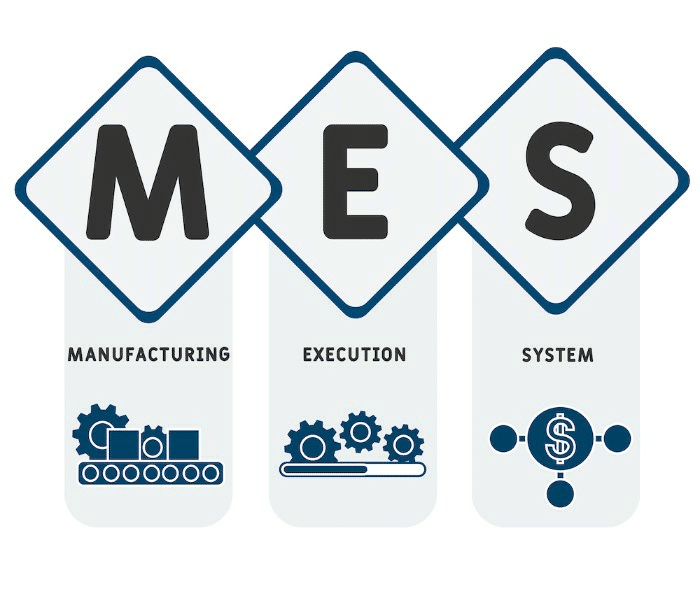Manufacturing Execution Systems (MES) are a software application that enables real-time monitoring, control, and optimization of the manufacturing process. It integrates and communicates with other manufacturing systems, such as Enterprise Resource Planning (ERP) and Manufacturing Resource Planning (MRP), to provide a comprehensive solution for the manufacturing industry. This article will explore what manufacturing execution systems are, the top benefits of MES, its core features, functionality, and its history and evolution, industries using MES, MES and ERP, MES and MRP, and whether MES is right for your business. Additionally, we will discuss ASC Software’s Manufacturing Execution Solution (MES/MRP) and its benefits for manufacturing industries.
What is a Manufacturing Execution System (MES)?
Manufacturing execution systems are software systems designed to manage and optimize the production process. They collect and analyze data from various sources in real-time to provide insights into the manufacturing process, improve efficiency, reduce waste, and increase quality. Manufacturing execution systems provide detailed information on the status of the manufacturing process, including inventory levels, production rates, and quality control measures.
Top Benefits of an MES System in Your Manufacturing Process
Manufacturing execution systems have several benefits for manufacturing industries, including:
- Real-time Monitoring and Control: Manufacturing execution systems provide real-time data on the production process, allowing manufacturers to identify and address issues before they become major problems. This reduces downtime and improves productivity.
- Improved Efficiency: A manufacturing execution system provides detailed information on the production process, enabling manufacturers to identify inefficiencies and improve production efficiency. This leads to reduced waste, increased throughput, and improved resource utilization.
- Increased Quality: MES enables manufacturers to implement quality control measures, ensuring that production units meet the required standards. MES provides real-time data on the production process, enabling manufacturers to identify quality issues and take corrective action.
- Improved Traceability: MES provides detailed information on the production process, enabling manufacturers to track products throughout the manufacturing process. This improves traceability and enables manufacturers to respond quickly to quality issues or product recalls.
- Compliance with Regulations: A manufacturing execution system enables manufacturers to comply with government or industry regulations, such as Good Manufacturing Practice (GMP) and ISO 9001. MES provides detailed data on the production process, enabling manufacturers to demonstrate compliance with regulations.
- Optimal Production Efficiency: A manufacturing execution system optimizes the entire production process, from raw materials to finished products. It helps improve production output, control systems, and logistics systems, and maintain regulatory compliance.
Core MES Features and Functionality
MES has several core features and functionality, including:
- Production Scheduling: MES provides a production schedule, enabling manufacturers to plan and schedule production runs. The production schedule is updated in real-time, enabling manufacturers to respond quickly to changes in demand and establish realistic production schedules.
- Resource Management: MES manages resources, such as equipment, materials, and personnel, ensuring that they are used efficiently. MES provides real-time data on resource utilization, enabling manufacturers to optimize resource allocation and improve business operations management.
- Quality Control: MES provides quality control measures, ensuring that products meet the required standards. MES enables manufacturers to monitor quality throughout the production process, identify quality issues, and take corrective action.
- Data Collection and Analysis: MES collects data from various sources, such as sensors, machines, and personnel, and analyzes it in real time. MES provides insights into the manufacturing process, enabling manufacturers to identify inefficiencies and optimize the manufacturing process.
- Inventory Management: MES manages inventory levels, ensuring that there is sufficient inventory to meet production demands. MES provides real-time data on inventory levels, enabling manufacturers to optimize inventory management and maintain full production traceability.
A Brief History and Evolution of MES Standards and Architecture
The development of MES can be traced back to the 1970s, when the first computerized manufacturing systems were developed. In the 1980s, the term MES was coined to describe software applications that managed and optimized the manufacturing process. Over the years, MES has evolved, with new standards and architectures emerging.
The Manufacturing Enterprise Solutions Association
In the 1990s, the Manufacturing Enterprise Solutions Association (MESA) was formed to develop MES standards and best practices. In 2001, MESA released the MESA-11 standard, which defined the functional requirements for MES. This standard has since been updated and expanded to include new technologies and trends, such as the Industrial Internet of Things (IIoT) and Industry 4.0.
Manufacturing execution system architecture has also evolved over time. Early MES systems were monolithic and proprietary, making it difficult to integrate them with other manufacturing systems. Modern MES systems are modular and use open standards, making it easier to integrate them with other systems. This allows for greater flexibility and scalability, as well as easier customization and maintenance.
Industries Using Manufacturing Execution Systems
MES is used in a wide range of industries, including:
- Automotive: MES is used to manage and optimize the production process in automotive manufacturing, ensuring high quality and efficiency.
- Electronics: MES is used to manage and optimize manufacturing processes in electronics, ensuring high quality and reduced waste.
- Food and Beverage: MES is used to manage and optimize production in food and beverage manufacturing, ensuring compliance with regulations and improving traceability.
- Pharmaceuticals: MES is used to manage and optimize production in pharmaceutical manufacturing, ensuring compliance with regulations and improving quality control.
- Medical Device: MES is used to manage and optimize production in medical device manufacturing, ensuring compliance with strict regulations and improving traceability.
MES and Process Control Systems (PCS)
Process control systems are software tools used to monitor and regulate the production process, ensuring that processes run smoothly and efficiently. MES can be combined with these systems to provide real-time data on production operations, enabling manufacturers to better manage their processes. By combining MES with a process control system, manufacturers can improve efficiency, reduce costs, and improve product quality.
MES and ERP
MES and ERP are two software systems used in manufacturing industries, but they serve different purposes. ERP is used to manage business processes, such as finance, sales, and human resources, while MES is used to manage and optimize the production process.
However, there is an overlap between the two systems, and they can be integrated to provide a comprehensive solution for manufacturing industries. MES provides real-time data on the production process, which can be used to inform ERP systems, such as inventory management and demand planning. This enables manufacturers to make informed decisions and respond quickly to changes in demand.
Enterprise and Control Systems
In addition to MES and ERP, enterprise and control systems are also used in manufacturing operations. These systems provide real-time data on production operations and enable manufacturers to monitor, control, and optimize the manufacturing process. Enterprise and control systems are typically used in conjunction with MES and ERP to provide a comprehensive manufacturing solution. By integrating these systems into the production process, manufacturers can gain greater visibility and control over their production operations.
MES and MRP
MRP is a software system used to manage material requirements, ensuring that there is sufficient inventory to meet production demands. MES manages the production process, ensuring that materials are used efficiently and effectively.
Like ERP, MES and MRP can be integrated to provide a comprehensive solution for manufacturing industries. MES provides real-time data on the production process, which can be used to inform MRP systems, such as inventory management and demand planning. This enables manufacturers to optimize inventory management and reduce waste.
Is MES Right for Your Business?
MES can provide significant benefits for manufacturing industries, including improved efficiency, increased quality, and compliance with regulations. However, implementing MES requires significant investment in time and resources, and it may not be suitable for all businesses.
Before implementing MES, it is important to assess your business needs and determine whether MES is the right solution for you. Consider factors such as the complexity of your manufacturing process, the level of automation, and the size of your business.
ASC Software’s Manufacturing Execution Solution (MES/MRP)
ASC Software’s Manufacturing Execution Solution (MES/MRP) is a comprehensive solution for manufacturing industries. It integrates MES and MRP functionality, providing real-time production data and enabling manufacturers to optimize inventory management and reduce waste.
ASC Software’s MES/MRP includes features such as production scheduling, resource management, quality control, data collection and analysis, and inventory management. It is designed to be flexible and customizable, enabling manufacturers to tailor it to their specific needs.
Conclusion
In conclusion, MES is a software system designed to manage and optimize the production process in manufacturing operations. It provides real-time data on production operations, enabling manufacturers to improve efficiency, increase quality, and comply with regulations. ASC Software’s Manufacturing Execution Solution (MES/MRP) is a comprehensive solution for manufacturing industries, integrating MES and MRP functionality to provide a comprehensive solution for optimizing production processes.
Contact ASC Software today to learn more about how our MES and MRP solutions can help your business.




